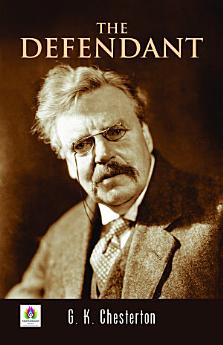The Defendant
About this ebook
As a prominent figure in English literature, Chesterton tackles themes that resonate deeply in contemporary society, seamlessly intertwining crime fiction with social commentary. He invites readers to consider not merely the events unfolding in his stories but the broader implications of the choices made by individuals within the rules of society. Through his sharp intellect and keen observations, he challenges conventional notions of guilt and innocence, leaving readers questioning their understanding of justice and morality.
In The Defendant, Chesterton approaches his subjects with a delightful mix of humor and seriousness. His wit breaks down the complexities surrounding difficult moral dilemmas, making heavy topics approachable and engaging. One can’t help but laugh at the whimsical scenarios he creates, even while pondering the serious undertones of his narratives. Chesterton’s ability to balance mirth and meaning is a hallmark of his storytelling mastery, ensuring that readers are not just entertained but also intellectually stimulated.
The collection comprises captivating tales that vary in tone and style, showcasing Chesterton's versatility as a writer. From the absurd to the profound, these narratives probe the essence of belief and skepticism, highlighting the tension between faith and doubt. Chesterton's emphasis on the importance of understanding God's truth serves as both a moral compass and a narrative guide throughout the stories. He emphasizes that, while society may lean towards cynicism and skepticism, there lies an inherent value in holding steadfast beliefs even amidst uncertainty.
A highlight of The Defendant is the author's unparalleled ability to present a philosophical reflection on human nature while weaving intricate plots that captivate the imagination. Readers will find themselves drawn into his clever investigations, pleasantly surprised by the twists and turns that define each story. As they probe the nature of evil through the lens of Chesterton's distinctive voice, they are encouraged to reflect on their own lives and beliefs.
Moreover, this collection serves as a brilliant introduction to Chesterton's literary legacy. His influence on detective fiction and philosophical writing is profound, with many of his concepts and storytelling techniques inspiring writers who followed in his footsteps. For lovers of literature, The Defendant stands as a testament to the power of narrative to explore complex ideas and elicit emotional responses.
In a world that often grapples with moral ambiguity, The Defendant offers readers clarity mixed with curiosity, urging them to engage in thoughtful contemplation about justice, morality, and the intricate dance between good and evil. With each turn of the page, Chesterton captivates, challenges, and entertains, making this collection an essential read for anyone interested in the rich tapestry of human experience and the quest for truth.







